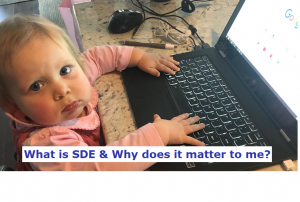

Seller’s Discretionary Earnings aka SDE is one of the most crucial concepts when valuing a small business. Put simply for those of us with a finance/investment banking background: SDE is to Small Business as EBITDA is to Big Business. Put simply for those with non-financial backgrounds you can think of SDE as the amount of cash flow that is generated by a business that an owner can use at their discretion to cover their own compensation, debt service, return on equity, and any capital expenditures.
Now, it’s important to note: Seller Discretionary Earnings is not the same as net income! Your CPA will try to manage a business’s net income to minimize tax liability whereas when you are selling your business you want to maximize that net income (or SDE) so as to in turn maximize the value of your business. The discretionary nature of how (and where on a Financial Statement) owners receive this cash flow makes the process complicated.
In order to produce a fair, ‘apples-to-apples’ number we must perform a process called ‘Recasting’. This is where we start with a business’s net income and then ‘add-back’ (and remove) certain items to arrive at a number that shows the normalized operating cash flow of the business. There are too many of these add-backs to list in full here (I can think of 28 off the top of my head and that’s not an exhaustive list) but some of the most common ones are:
And hey-presto! (if only it was as easy as saying it…) recasting is complete and you are left with SDE – the actual amount of cash the business spins off regardless of who the owner is and how they allocate it.
Important note: For an add-back to be counted it must be verifiable!
Ok so what now? We perform this process over 3 years of data and calculate a blended average SDE. Then we apply a multiple (more on these in another article) to this figure to arrive at an approximate value for your business i.e. SDE * Multiple = Business Value. From there your business broker or intermediary will refine this number to get to a precise business value.
So, as hopefully, you can see whether you are looking to sell a business or buy one, Seller’s Discretionary Earnings is a particularly important number.
Simon Paine is the Managing Partner & Business Broker at Murphy Business Sales – Charlotte. If you are thinking of Buying or Selling a Business, or just interested in a chat about exit planning and the business transaction process – Call on (704)-804-5071 or email s.*****@************ss.com
You can find more articles and advice at murphybusiness.com
Murphy Business Sales – Charlotte also serves Harrisburg, Gastonia, Concord, Huntersville, Mt. Holly, Clover, Pineville, Matthews, Indian Trail, Rock Hill, and Monroe.